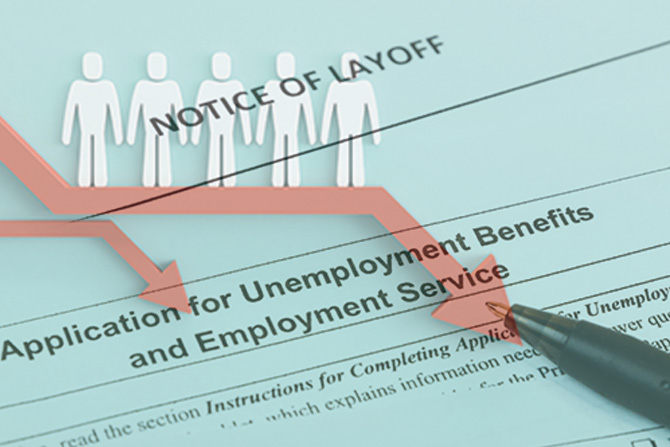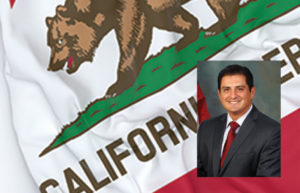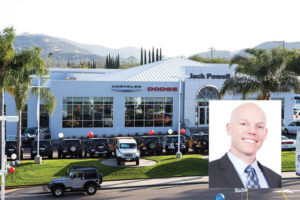Contributed by Fisher Phillips | fisherphillips.com
From leaves to loans to local orders to layoffs, in the months since Governor Newsom first issued his executive order requiring all Californians stay at home, there have been a variety of new laws at the federal, state, and local levels impacting dealership employers. While there could always be additional changes, below are some of the key laws Dealership employers should be aware of as we navigate this spring’s COVID-19 outbreak.
Employee Leaves
Paid Sick Leave. For the past several years, California and the City of San Diego have required employers provide paid sick leave to prevent and treat the illnesses and injuries of employees and their family members. This could make time off work to prevent contracting COVID-19 a qualified reason to take paid sick leave. Additionally, the City of San Diego allows paid sick leave to be used when the employee’s workplace or their child’s school or child care provider is closed by a public official due to a Public Health Emergency.
Families First Coronavirus Response Act. Effective April 1, 2020, this federal law entitles employees of companies with fewer than 500 employees to emergency paid sick leave as well as expanded family and medical leave for certain absences that occur between April 1, 2020 and December 31, 2020.
Emergency Paid Sick Leave allows employees up to 80 additional hours of paid sick leave specifically for COVID-19-related absences. When the employee is absent for their own illness or isolation order, the law requires pay at the employee’s regular rate of pay, up to a maximum of $511 per day or $5,110 over the entire paid sick leave period. When the absence is related to care of a family member, the employee should be paid 2/3 of their regular rate of pay, up to a maximum of $200 per day or $2,000 over the entire paid sick leave period.
Expanded Family and Medical Leave allows employees up to twelve weeks of paid leave—the first two weeks unpaid and the last ten at the greater of $200 per day or 2/3 the employee’s regular rate of pay for the hours they would have been scheduled to work—for absences related to care of a child whose school was closed due to COVID-19. The employee may elect to use paid leave for the first ten workdays under the employer’s existing paid leave plans or Emergency Paid Sick Leave. Additionally, employers can elect to allow employees to use their paid leave to supplement their pay for the last ten weeks of leave.
Employers who are required to provide these leaves may seek tax credits for reimbursement for costs of these leaves. However, certain dealerships may not be required to provide the leaves—and thus not potentially eligible for the tax credit—if they would be considered a joint employer with another entity under the Fair Labor Standards Act (FLSA) or part of an integrated employer under the Family Medical Leave Act (FMLA) and the total number of employees between the multiple entities is greater than 500. The tests for joint employment and integrated enterprises depends on multiple factors. Dealerships should consult with their lawyer to identify the likelihood that they would be considered a joint employer or integrated employer.
Loans
The federal CARES Act, passed in late March, created several incentives for employers to retain or rehire employees in spring 2020, including the Payroll Protection Program. The PPP is a small business loan to cover payroll costs up to $100,000 per employee and other overhead costs. These loans are eligible for forgiveness for employers that retain or rehire its employees. Partial forgiveness is also available based on headcount and/or wage retention. Generally, loans under this program are only available to employers with 500 or fewer employees; however, exceptions may apply to dealerships with annual receipts under certain thresholds.
Other loans that may be available to cover COVID-19-related financial hardships include an advance on an Economic Injury Disaster Loan or an SBA Express Bridge Loan. Certain small businesses with existing SBA loans may also be eligible for debt relief.
Local Orders
Under California’s Resilience Roadmap, businesses around the state have been reopening after Governor Newsom issued an executive order on March 19 requiring all California residents except those qualifying as essential workers to stay at home. During what is now Stage 2 of the Resilience Roadmap, Dealerships are permitted to fully reopen as long as they follow the relevant Industry Guidance issued by the California Department of Public Health and Cal/OSHA. Despite being labelled as “guidance,” businesses must comply with the mandatory provisions of the Industry Guidance.
In addition to the state’s Industry Guidance, many local governments have also imposed restrictions aimed at curtailing the spread of COVID-19. The most recent Public Health Order from San Diego County requires that businesses complete and post the Social Distancing and Sanitation Protocol (for essential businesses) and the Safe Reopening Plan (for non-essential businesses). Reopened businesses must include all mandatory measures from Industry Guidance as part of the Safe Reopening Plan, and must further include all suggested measures necessary to maintain proper sanitation, employee screening, social distancing, and facial coverings. Regardless of whether your Dealership (or parts of your Dealership) was open as an essential business or whether it reopened as a non-essential business, best practice is to comply with all requirements necessary for reopened businesses.
In addition to creating a written plan, all businesses in San Diego County must require employees to wear face coverings unless they fall within certain narrow exemptions permitted by the Public Health Order. Further, businesses must conduct temperature screenings and prohibit entry of employees with a temperature of 100 degrees Fahrenheit or more. Businesses must also prohibit entry for employees exhibiting COVID-19 symptoms or employees who have recently been exposed to a person who has tested positive for COVID-19.

Layoffs
With so many companies unable to operate at full capacity, many employers have had to consider mass layoffs. Typically, when a California employer with over 100 full-time employees or with 75 employees at a specific location lays off (or furloughs) either a substantial portion of its workforce or at least 50 employees, it is required to provide employees 60 days of advanced notice under state or federal law, or both. However, most employers did not anticipate the need for any layoffs two months ago, due to the quick and unexpected disruption of the economy by COVID-19 and related shutdown orders. For this reason, Gov. Newsom has suspended the requirement that employers provide the full 60-day notice for layoffs, provided they still provide notice as soon as practicable and include specific language directing laid-off employees on how to learn about unemployment benefits.
Lasting Impact and Leadership
Current news reports show an increase in infections and deaths in the state as mandatory stay-at-home restrictions are loosened. However, even if businesses continue to reopen, the impact of this virus and our stay-at-home habits will undoubtedly linger as some consumers will be hesitant to venture out in large groups or shake hands, and employees may be fearful to return to a workspace that requires they work in close proximity to others. Dealerships can prepare by brainstorming potential solutions now, working with legal counsel to confirm compliance with the standard framework of employment laws, including disability and medical condition anti-discrimination laws.
In the meantime, this current crisis has served as a reminder of our shared humanity. While this time is stressful for businesses and employers are subject to a new and evolving framework of legal requirements, dealerships will be best served in the long run by leaders who incorporate and remember humanity in their interactions and communications with employees.
Contributed by Fisher Phillips | fisherphillips.com
Fisher Phillips is a national law firm that focuses exclusively on labor and employment law for employers. Founded in Atlanta, they have 32 offices and more than 350 attorneys who practice before state and federal courts and administrative agencies in virtually every state.
This story appears in Issue 3 2019-2020 of the San Diego Dealer Magazine.







